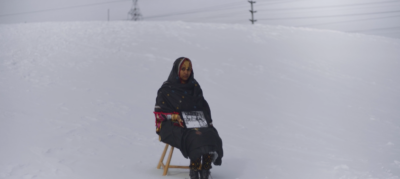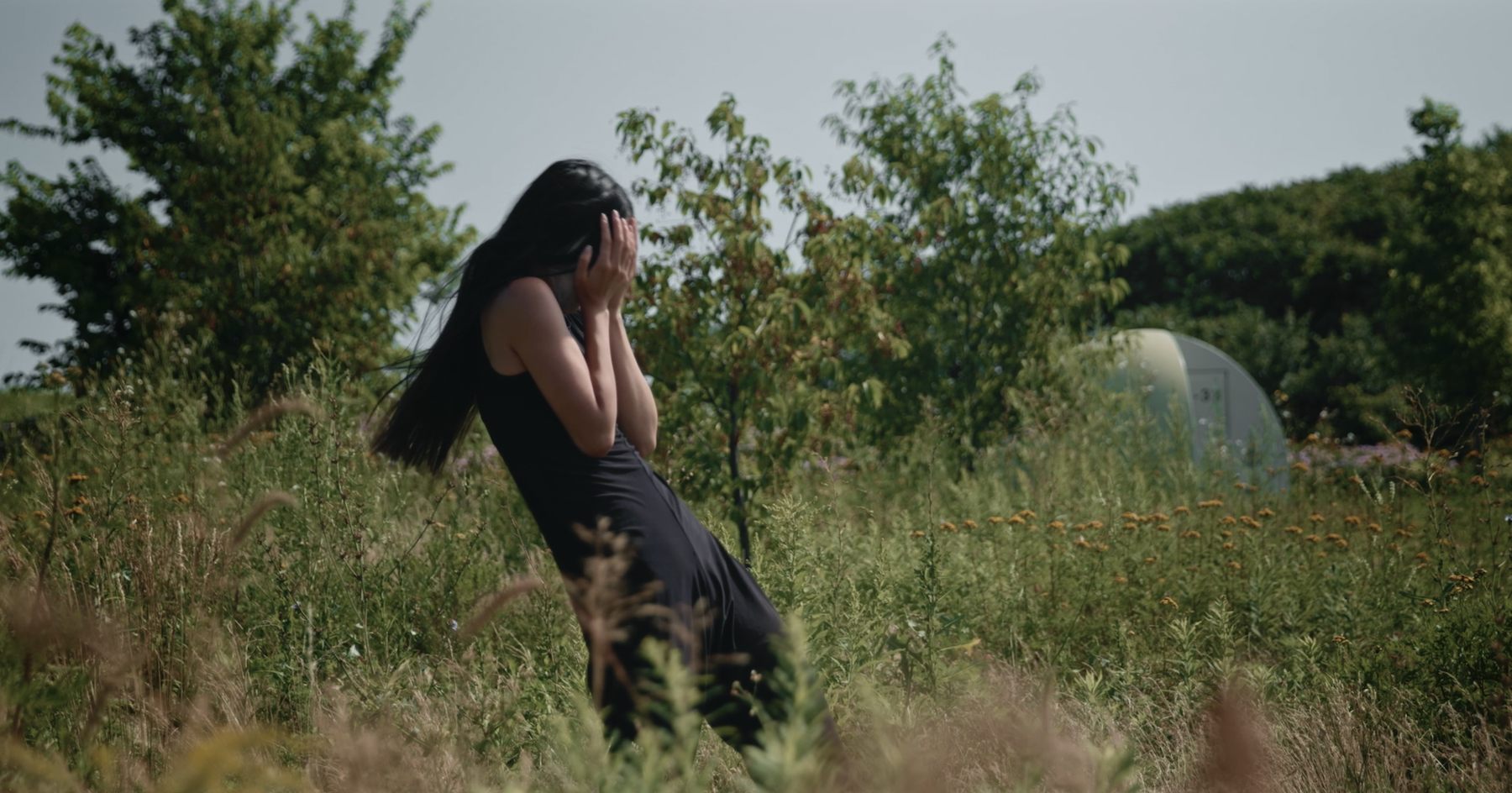This June, watch compelling short films from some of Canada’s brightest women and non-binary filmmakers at Breakthroughs Film Festival (BFF).
Since 2011, BFF has strived to bridge the gender gap in the film industry. While significant progress has been made in the last decade, women and non-binary filmmakers continue to face barriers to funding, opportunities, and recognition.
A 2021 report from Women in View found that investments in women-produced and women-directed films in Canada remain lower than films led by men, and are even lower when producers and directors are Black women, Indigenous women, and women of colour. Breakthroughs is Canada’s only festival of its kind, and is a valuable space for emerging women and non-binary filmmakers to find guidance, support and community.
From June 8-11, BFF will showcase 20 short films in a variety of genres, from Canada and around the world, all under 20 minutes in length. The festival will open with screenings at Paradise Theatre on June 8 and 9, as well as an awards ceremony, filmmaker Q&As and a meet and greet hour.
FUTURESELVES is the theme of this year’s festival, inviting filmmakers to consider what our communities may look like living beyond colonizing powers, the impacts of climate change, censorship, surveillance and sustainability.
“This is a festival where you will see your authentic self represented on screen, as well as your friends, neighbours, parents, and everyone else in your community. We truly have something for everyone,” says Board of Directors Chair Samantha Summers. “You will laugh, you will cry, you will leave rejuvenated.”
We connected with Summers to hear more about what we can expect at Breakthroughs Film Festival this year, and how we can continue to support women and non-binary filmmakers.
Have opportunities for women and non-binary filmmakers improved since BFF was founded in 2011? What still needs to be done?
By the numbers, women and non-binary filmmakers have many more opportunities than they did back in 2011. Cis women, and white women specifically, are now being recognized as big hitters in the film industry—a trend that is visible in how nominations at major award shows are distributed now versus then.
However, with the rise of fascist rhetoric, and particularly with attacks on transgender and non-binary lives becoming more frequent across the West, women and non-binary filmmakers continue to be frequently exposed to legislative violence as well as the violence that already existed in the film industry. What we need as a community is for more established filmmakers, particularly those who do enjoy a great deal of privilege, to stand with and for women and non-binary filmmakers; to make it a priority to share these voices and these stories authentically.
What are some of the positive impacts that you’ve witnessed come out of Breakthroughs?
The most common word I hear when discussing Breakthroughs with our filmmakers and attendees is “community.” Breakthroughs’ most positive impact to date is that we have created a community where filmmakers who are frequently marginalized in the industry can share their art with people who care about their voices, find audiences who have shared their experiences, and find a family that loves the artists behind the films just as much as the films themselves. This year, I look forward to coming together with this amazing community as we explore the many brave, beautiful futures that are in store for us all.
Can you explain this year’s theme, FUTURESELVES, and why it was chosen?
FUTURESELVES is all about exploring who we will be one day, and how we are currently setting ourselves up for the infinite possible futures that lay before us. The films we are programming this year explore the myriad ways we change and grow over the course of our lives, and how our communities change and grow with (or without) us. They also challenge us to embrace the many unknowns that lay before us, and to have the courage to find joy in our paths to come.
As a Board, after so many years of living in a fraught present—with the ongoing pandemic, threats to human rights worldwide, and more impacting our global community—we were excited by a theme that would allow us to imagine radically different futures.

Can you share one or two of the films at this year’s festival that resonated most with you?
Our entire slate of films this year is beautiful, and I know that everyone will find different pieces of each film that will resonate with them. Personally, I was touched by Niya Abdullahi’s in the whiteness and Britt Raes’ Luce and the Rock. in the whiteness is a beautiful meditation on community and kinship in the face of oppression and highlights the importance of that kinship in building a future where colonialism and patriarchy are destabilized. Luce and the Rock uses delightful animation to explore the joy of embracing the new and unexpected, and the freedom that comes in allowing our communities to grow in ways that we can neither predict nor control.
What are some ways people can support women and non-binary filmmakers year round?
The best thing anyone can do is to engage with their content. Watch their films, follow them on social media, and encourage those you know to do the same. To obtain funding for future projects filmmakers often have to demonstrate their reach, so contributing to that reach will have tangible benefits for their careers. Alternatively, if you happen to have $100,000 on hand, I know about fifty filmmakers who would love to have a project funded.
See the official selections for the 2023 Breakthroughs Film Festival, running June 8-11, and grab your tickets here!



 Follow Us On Instagram
Follow Us On Instagram
